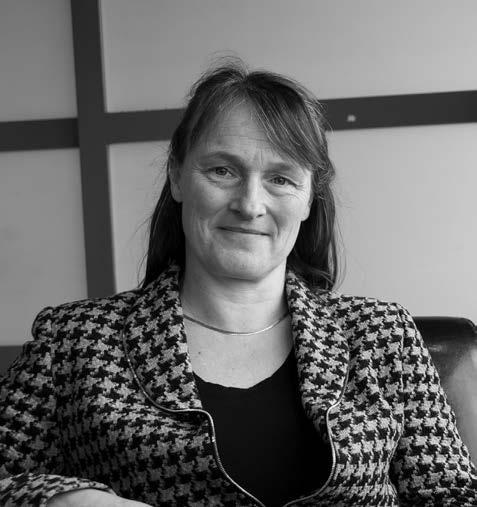
4 minute read
2 Supervision and advice: safeguarding trust
The RvA is allowed to operate with a high degree of independence but forms of supervising the work and advice in the accreditation decision-making process are of major importance in this connection. They guarantee the expertise, impartiality and independence of the RvA and provide a critical evaluation of our activities.
Supervision and advice contribute to a major extent to the trust the public sector, society and our customers have in the performance of our activities. Various bodies and committees are active in the RvA to this end. In the organisational chart in Annex 2 you can see their relation to each other and their composition. In this chapter we will outline the role and activities of the different bodies and committees.
Board of Supervisors
The Board of Supervisors of the RvA is comparable to the supervisory board of a commercial organisation. The Board of Supervisors ensures that the Board of Directors realises the objectives of the RvA. Selection of Members takes place on the basis of expertise and competencies. It is preferable for the following competence areas to be represented on the Board of Supervisors:
• business sector
• public sector
• research/technology
• healthcare/medical
• food and goods
• quality
It is important that the Members of the Board of Supervisors:
• have wide knowledge and experience of professional organisations;
• are properly able to advise and encourage;
• apply an objective, detached approach;
• have integrity and a sense of responsibility;
• have an independent and critical attitude;
• can formulate a balanced assessment.
The members of the Board of Supervisors are appointed for a period of three years and can be reappointed twice for the same period.
Accreditation Committee
The Accreditation Committee consists of four members. They are appointed by the Board of Supervisors on the basis of their expertise in accreditation, their integrity and independence. The Accreditation Committee meets once a month. Its duty is to advise the Director/Chief Executive about the granting of accreditations. In addition the committee has the power to advise on the suspension or withdrawal of accreditations. It receives information from the Board and the Executive Board and the management about measures and sanctions against organisations.
The Accreditation Committee does not take decisions. The decision-making is entrusted to the Board. If the view of the Board is different from the advice of this Committee, the Board of Supervisors will be heard. The Accreditation Committee reports annually on its activities to the Board of Supervisors.
Objection Chairmen Committee
It is possible that there may be an objection to a decision by the RvA. If that is the case, the Objection Chairmen Committee will be engaged. This Committee consists of at least one and not more than five legally trained Members. If a notice of objection has been received, the Board will appoint a Member of the Objection Chairmen Committee to form an advisory committee for that objection. The Members of this Committee are strictly independent. They will never be Members of the Board of the RvA and do not carry out any activities under the responsibility of the Board. They are appointed by the Board of Supervisors. This guarantees impartial treatment of objections.
Board
The Director/Chief Executive is responsible for the realisation of the RvA’s objectives, its strategy and policy, and the developments resulting from these. He accounts for this to the Board of Supervisors.
Executive Board
The Executive Board of the RvA consists of the Director/Chief Executive and the Director Operations. They take care of the proper policy and management of the organisation and they report on this to the Board of Supervisors.
Stakeholder advisory panel
The Stakeholder advisory panel of the RvA was established in 2013. In this advisory panel the interested parties in the work of the RvA are represented in the broadest sense: the public sector, direct clients of the RvA, direct clients of the conformity assessment bodies and scientific institutes. The panel operates at a strategic and tactical level. The aim of the panel is twofold:
• advising the Board and the Executive Board about general policy matters whether or not requested; • guaranteeing the impartiality of the RvA in policy matters.
The Stakeholder advisory panel meets twice a year to discuss (for instance) relevant developments, the added value of the RvA and the long-term vision and once every two years organises a conference in which the support is consulted. The Board of Supervisors receives the minutes of the meetings and the decisions of the Panel are published on our website.
User Council
The User Council is an advisory panel laid down in the Articles. The Council consists of representatives of direct clients of the RvA and meets twice a year to advise the RvA about the budget and rates and about the service level of the RvA. The Board of Supervisors receives the minutes of the meetings, so that it can include the opinions of users in its deliberations.
EA Multilateral Agreement Committee
In order to remain a signatory of the Multilateral Agreement (‘MLA’) the RvA must satisfy the requirements of the European Regulation 765/2008 and the international ISO 17011 standard. Every four years the RvA is assessed by a team of about eight ‘peers’ in the form of a peer evaluation. Representatives of the Ministry of Economic Affairs are invited as standard in this connection.
Ministry of Economic Affairs
The RvA must comply with the relevant provisions of the Dutch Independent Executive Agencies Framework Act (Kaderwet zelfstandige bestuursorganen) and European Regulation 765/2008. The Ministry of Economic Affairs supervises this.
The forms of supervision and advice outlined in this chapter are a major contribution towards the RvA having confidence in the future. This confidence not only applies to our organisation, but also to our clients and the people. Therefore this is the place to thank all who are active in the bodies and committees referred to above for their input in 2014.





